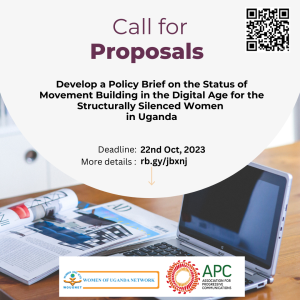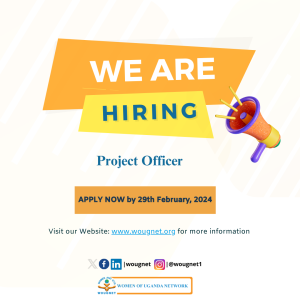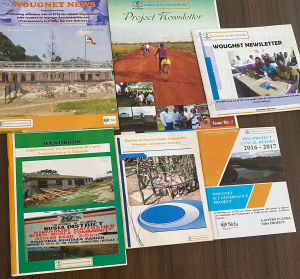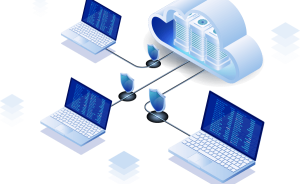Women’s rights are human rights that are essential and core for the full and equal participation of women in all areas of society. Unfortunately, they are often violated particularly online through various forms of harassment and violation, which has caused some women to withdraw from using the internet, leading to an increase in the gender digital divide.
According to International Telecommunication Union (ITU) findings, globally, in 2020, 62 percent of all men were using the Internet as compared to 57 percent of all women. World Wide Web data shows that globally, the divide remains wide in the low-developed countries (LDCs), where only 19 percent of women are using the Internet (12 percent points lower than men), the landlocked developing countries (27 percent of women versus 38 percent of men). In Uganda, men remain 43% more likely to be online than women.
Key barriers leading to an increase in the gender digital divide gap
The persistence of gender stereotypes and biases limits women’s opportunities and perpetuates harmful attitudes and behaviors toward them. These come in a number of ways such as the gender pay gap where a woman who is doing the same work as a man receives a lower pay, and unlimited access to healthcare, especially in rural areas, among others
Additionally, the normalization of violence against women by society online is also a key challenge women face in accessing and protecting their rights in a way that any woman who stays in an abusive environment or absorbs violence is considered a strong woman while the one who speaks out is regarded as a toxic and a spoilt one. With this, most women opt to keep silent and go offline, thus, widening the gender digital divide.
Furthermore, lack of skills is another big factor keeping women offline. Most women, especially in rural areas do not use internet technologies because they do not know how to.
Women also have less trust in online companies using their data responsibly. They are also more concerned about their privacy and the misuse of their personal data compared to men in relation to the pervasive issue of online harassment and abuse which has had a mental effect on them. For example, some journalists fear to pursue some stories for fear of being harassed online. For resistance, a Ugandan news anchor Joy Doreen Biira, at a Kenyan television station was arrested after posting on Facebook during a police offensive on the Obusinga Bwa Rwenzururu palace in response to clashes between security forces and rebels, and the harassment of Bahati Remmy by a police officer on Facebook after broadcasting for NBS TV to cover the house arrest of opposition politician Dr. Kiiza Besigye in the town of Kasangati, which made her quit reporting news in Uganda for the United States. Such acts have made many women journalists in Uganda stop reporting stories that are critical of the government. This reduces the number of voices of female journalists in the media, particularly online media.
However, to address these issues as stakeholders, we need to work together to create an inclusive and accessible environment that supports the needs of our women and girls especially in the rural marginalized places; invest in the digital infrastructure that is designed to meet the unique needs of women and girls which includes access to affordable and reliable internet, training and mentorship programs and opportunities to learn new digital skills.
We also need to ensure that girls and women are able to use these digital devices safely and securely without any fear of harassment or any other forms of harassment. For example, WOUGNET has engaged women and girls in several digital training under different projects that as OVOF, CUSDS, and SMILE, with the aim of promoting digital skills and ICT education for women and girls and empowering and equipping women and girls with knowledge, skills, and competence in the use of digital technology that is, use of Zoom, and on how they can be safe online and safeguard their online privacy, which has reduced online harassment.
There is a need for stakeholders in their different connections to ensure that women and girls are able to fully participate in the digital economy and society by promoting women’s leadership in the technology sector, creating opportunities for women to use technologies to advance their careers, start their own businesses and pursue their passion.
In conclusion, despite much progress made in securing women’s rights globally, millions of women and girls still continue to experience discrimination and violence, being denied their equality, dignity, and autonomy.
Compiled by;
Babirye Roseline | Program Assistant, Gender and ICT Policy Advocacy






